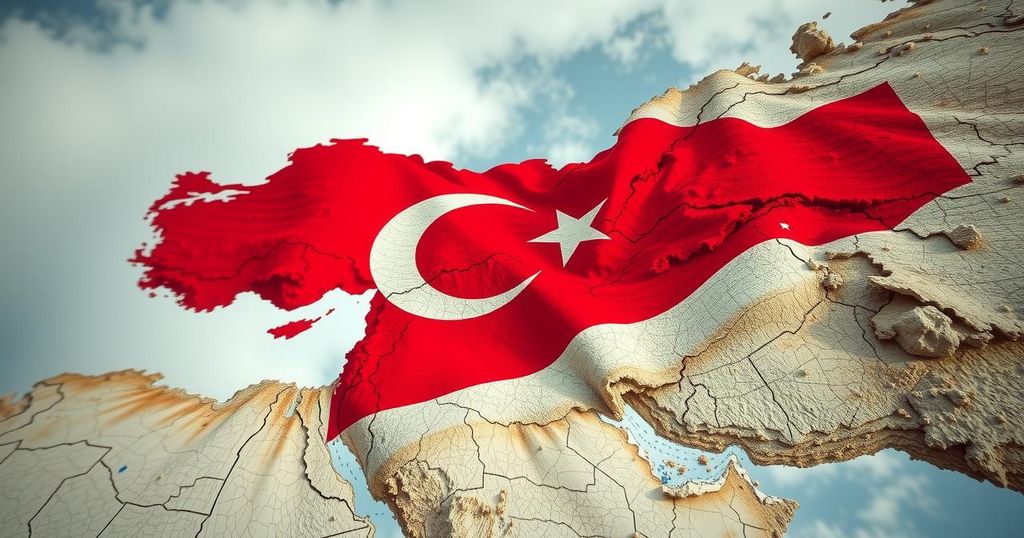Turkey Emerges Stronger as Russia and Iran Are Sidelined by Fall of Damascus

The fall of Damascus has diminished the influence of Russia and Iran while enhancing Turkey’s role in Syria. Despite diplomatic efforts, Assad’s regime has rejected negotiations, forcing a reassessment of the regional balance of power. Turkey’s potential to lead the formation of a new government for Syria post-Assad could mark a significant shift in the conflict’s trajectory.
The recent developments in Syria, particularly the fall of Damascus, have rendered Russia and Iran significantly sidelined while elevating Turkey’s position in regional dynamics. Despite a last-ditch effort by Russian and Iranian diplomats to exert influence over the Assad regime, their attempts were quickly undermined by Assad’s refusal to engage in negotiations. Key international discussions, aimed at preserving Syria’s territorial integrity and seeking a political resolution, became futile when news of Assad’s downfall emerged shortly after the summit. Russian Foreign Minister Sergei Lavrov found himself increasingly uncomfortable discussing Syria’s future, particularly as questions about Russia’s role over the past decade surfaced. Meanwhile, the Turkish Foreign Minister suggested a potential transformation of power dynamics, with Turkey poised to support a consensus government formed by Syrian opposition factions.
Turkey’s emerging influence is critical in shaping the post-Assad landscape, given its relationships with Syrian militias such as the Syrian National Army and even some factions within Hayat Tahrir al-Sham. As Iran’s strategy falters and its connections to the region weaken, Turkey appears well-positioned to play a leading role, potentially aiding the Syrian people in their quest for a more stable future.
The implications of these changes extend beyond immediate military and diplomatic considerations, as they may redefine alliances and enmities within the Middle East. The hastily evolving situation prompts a reassessment of the international community’s involvement and the urgent necessity for a coherent strategy toward realizing peace in Syria.
Syria has been embroiled in a complex conflict since 2011, leading to widespread violence and humanitarian crises. The Assad regime, supported by Russia and Iran, sought to suppress opposition to its rule, but the dynamics have shifted dramatically following significant military setbacks. Simultaneously, Turkey has been advocating for its interests in the region, which includes supporting various rebel factions and seeking a change in the political landscape in Syria. The fall of Damascus represents a pivotal moment that may influence the future geopolitical configurations in the Middle East as external powers reassess their objectives and alliances.
The recent events surrounding the fall of Damascus have significantly altered the landscape of the Syrian conflict. As Turkey becomes more prominent, it is essential to monitor how this shift influences both the domestic situation within Syria and the larger geopolitical framework of the region. The implications of Russia’s reduced influence and Iran’s faltering strategy pose critical questions about future stability and governance in Syria, underscoring the intricacies of international diplomacy in a rapidly changing environment.
Original Source: www.theguardian.com






